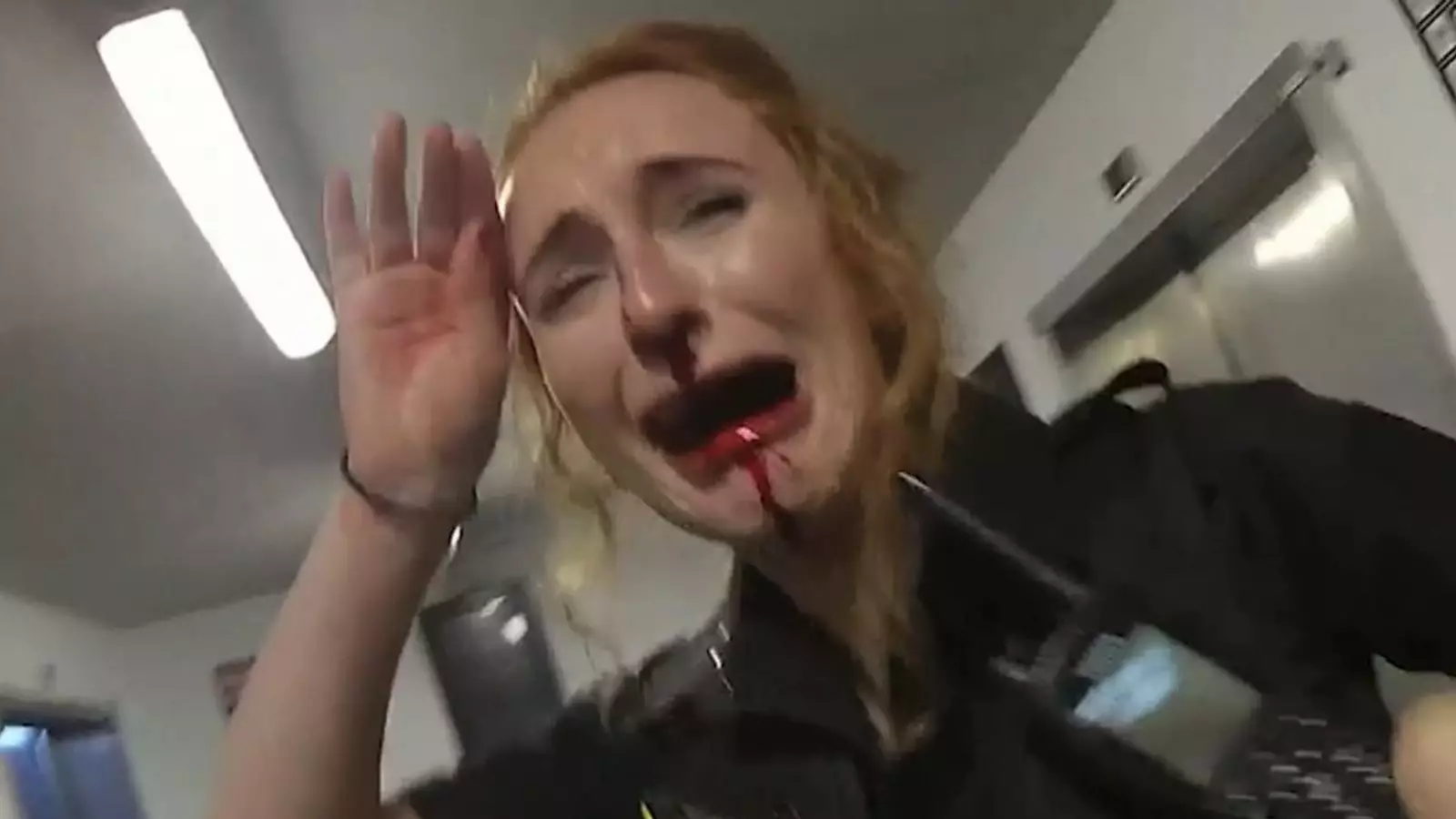The brutal assault on PC Lydia Ward at Manchester Airport starkly exposes the systemic issues within contemporary policing and societal attitudes toward law enforcement officers. While the court documents paint a vivid picture of chaos and violence, they also reveal a deeper failure of our justice and social support systems to genuinely protect those tasked with maintaining safety. PC Ward’s account—of being punched, kicked, and ultimately bloodied in the line of duty—should spark a broader conversation on how society values its protectors. Her fear, her trauma, and her physical injury are not isolated incidents but symptomatic of a troubling trend: the diminishing respect and support for law enforcement agents who face rising hostility.
It is alarming that a police officer, risking her safety daily, can find herself so vulnerable and seemingly abandoned during a moment of crisis. Her testimony describes a scenario where bystanders neither intervened nor assisted, and her colleagues seemed powerless to prevent the escalation. This highlights a troubling societal indifference, where “public support” often translates into dismissiveness or apathy when officers are under attack. The criminal justice framework, which should serve as a shield for officers in peril, appears inadequate in curbing violence directed at those who serve the community. Our laws and their enforcement must evolve to better safeguard the personnel who are on the front lines of public safety.
Accountability and Societal Responsibility
The case of Mohammed Fahir Amaaz, accused of assaulting PC Ward and resisting arrest, exposes a broader cultural issue: the decreasing respect for authority. Amaaz’s defense suggesting he believed he was acting in self-defense isn’t just a legal argument; it reflects a societal problem where respect for law enforcement is eroding. In a society that often glorifies individual rights above communal responsibilities, it is no surprise that some view police officers as obstacles rather than officers of justice. That Amaaz and his brother are from Rochdale, a place often stigmatized, underscores how social and economic disenfranchisement can fuel hostility toward authority figures.
What’s most troubling, however, is how the system responds to such violence. Instead of being met with swift justice, incidents like these risk becoming normalized if society refuses to enforce boundaries firmly. It is crucial that public discourse shifts toward defending the rule of law and recognizing that physical violence against officers isn’t a matter of individual misconduct but a societal failure. We must demand a justice system that recognizes the importance of protecting officers as vital pillars of communal stability and safety—rather than perpetuating a narrative where their injuries are viewed as merely collateral damage.
From Victims to Symbols of a Broken System
PC Ward’s harrowing account humanizes the often unseen toll of policing—far beyond the badges and uniforms, real people face real danger. Her description of feeling completely terrified, blood pouring from her nose, and being unsure of her surroundings captures the human cost of violent encounters. Yet, her experience is more than personal trauma; it is emblematic of a system that must do better. When officers are attacked and left to fend for themselves, it signals a failure to uphold the principle that those who serve should be protected by the very institutions they uphold.
Furthermore, the inaction of bystanders and the general lack of societal empathy betray a fragile social fabric that undervalues communal safety. Our legal and social institutions should be designed to reinforce respect for authority and deter aggression against law enforcement. When such assaults occur, society must respond with unwavering resolve, showing that violence against officers is unacceptable and will have consequences. Only then can we begin to restore a climate of trust and support that is essential for effective policing.
The incident at Manchester Airport should serve as a wake-up call. It underscores the urgent need to reevaluate how society recognizes, supports, and protects its public servants. Without systemic change—combining legal reforms, community engagement, and cultural shifts—our police officers remain vulnerable, and justice remains elusive for those who dedicate their lives to our safety. Protecting those who protect us is not just a moral imperative; it is the foundation of a just and equitable society.

